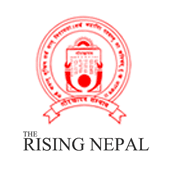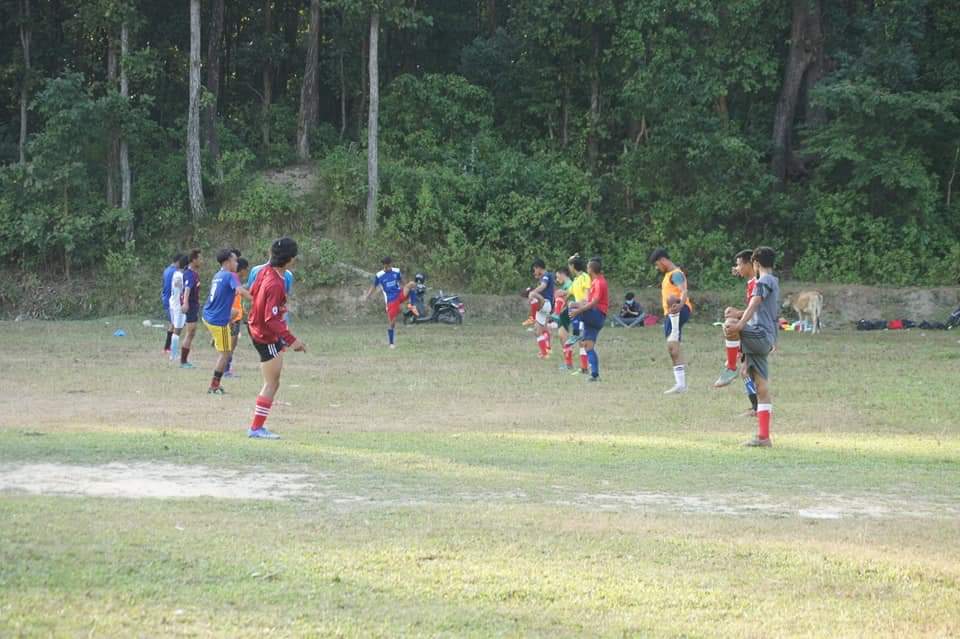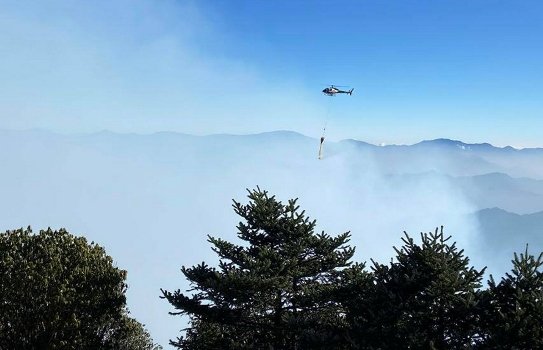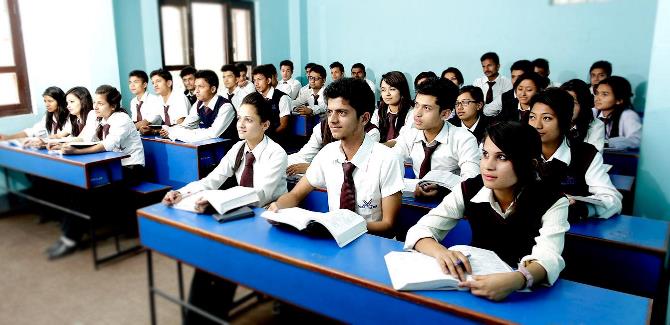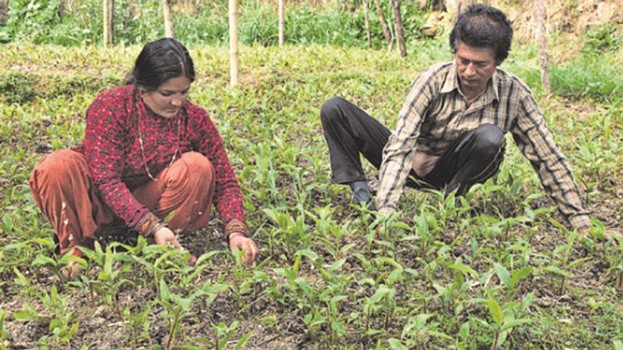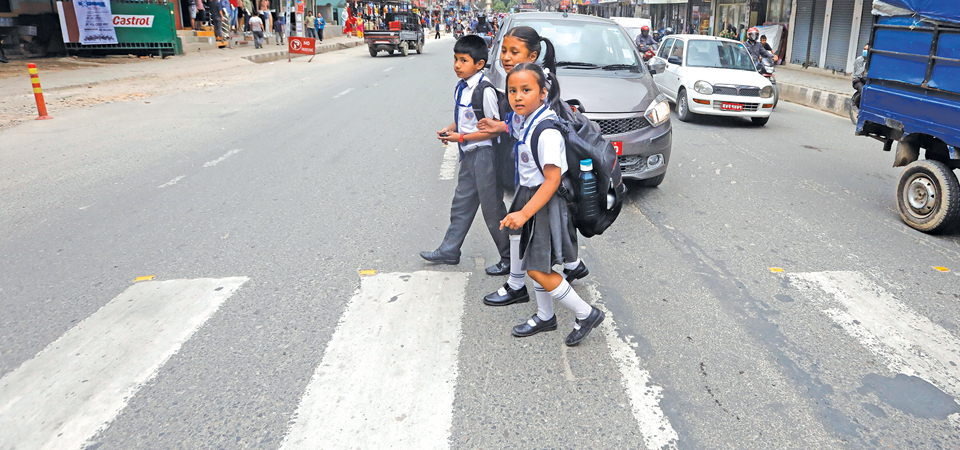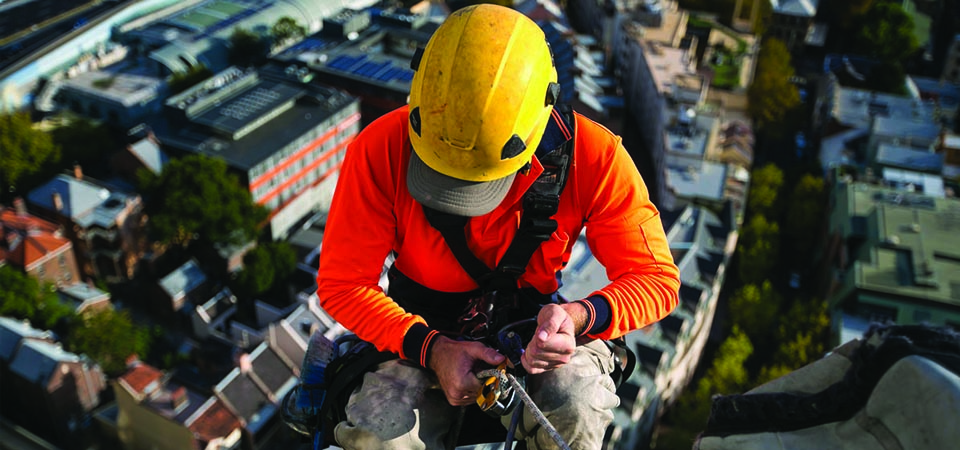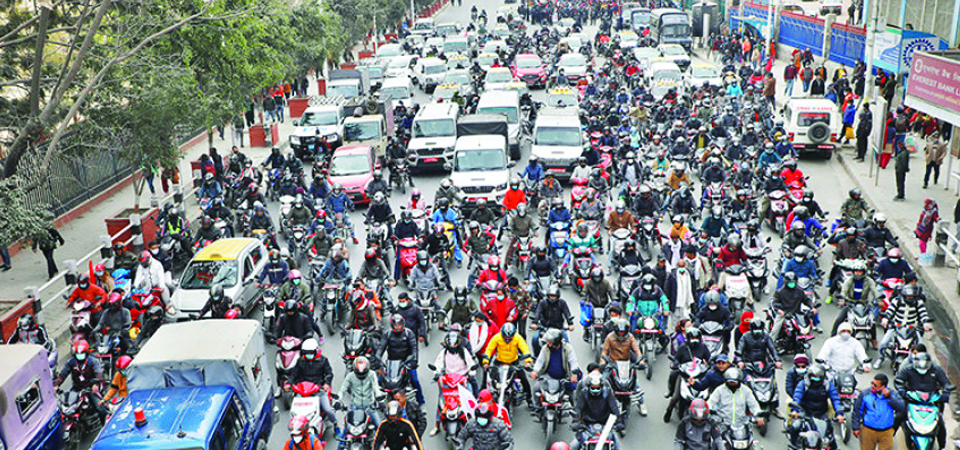Taxi drivers still unhappy with 'overdue' fare revision
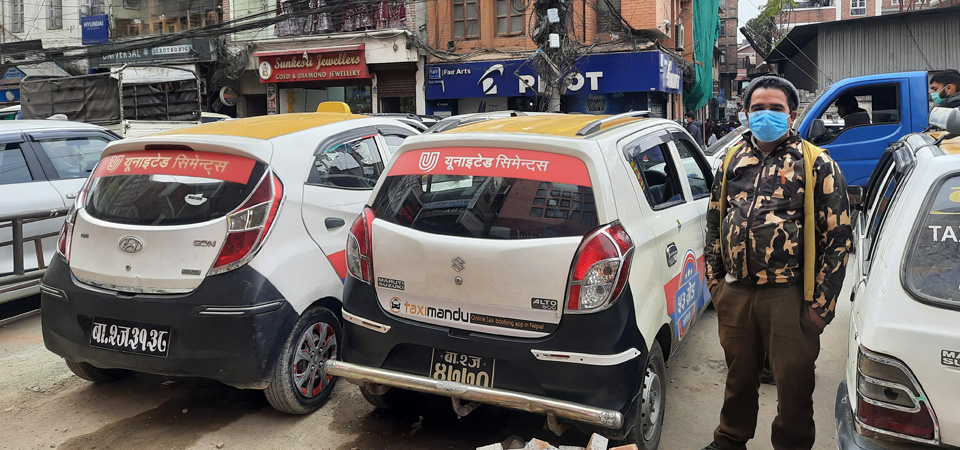
By Nayak Paudel
Kathmandu, Jan. 11: Navaraj Adhikari, 47, has been earning his livelihood as a taxi driver for almost a decade now.
The Kathmandu Valley has changed a lot, says Navaraj, as prices of goods and services have soared, “but only taxi fare still remains the same”.
Transporting passengers under a flag down of Rs. 14, Navaraj has seen the rate being increased up to Rs. 39 per kilometre.
After repeated calls from the taxi drivers, the Bagmati Province Physical Infrastructure Ministry on Saturday, issued a notice informing that the taxi fare had been revised and would be implemented from January 15.
Provincial governments are tasked with the responsibility of setting the fare for public vehicles operating within their territory.
However, the taxi drivers have shown reservations saying the fare was not increased as demanded by the market.
According to the notice, Rs. 60 has been set as a flag-down rate for the first kilometre. After that, Rs. 9.80 will be charged on every 200 metres.
Officials at the Labour, Employment and Transport Ministry of Bagmati informed that they fixed the new fare by analysing the overall market situation.
“The fare wasn’t revised for nine years. The new fare is set in a way that the consumers and taxi operators wouldn’t find it expensive and insufficient respectively,” said Prakash Adhikari, section officer at the ministry.
“We have seen several changes in the last decade regarding taxi fare. If one compares the taxi fare to the soaring value of market price and living conditions, one finds the answer to our situation,” said taxi driver Navaraj.
His statement was supported by a couple of other taxi drivers who were staying alongside him at a taxi stand in New Road on Sunday.
“I paid a monthly rent of Rs. 1,850 and the fuel price was Rs. 64 per litre nine years ago. I am living in the same room today as well and I pay a monthly rent of Rs. 9,000; the petrol costs Rs. 136 per litre. But, I still earn the same amount,” Navaraj said.
According to taxi drivers, they save around Rs. 1,000-1,500 a day – but not daily – by cutting their expenses such as fuel and food. They also informed that they struggle to find parking places and pick passengers easily across the Valley.
“I used to earn Rs. 50,000 a month by cutting expenses of food, lodging and entertainment with friends while in the Gulf. I returned three years ago with a thought of doing something in Nepal itself and started driving a taxi. I had never been so stressed regarding an income,” said Shyam Maharjan, a 40-year-old taxi driver.
Maharjan, who was also in the taxi stand of New Road, informed that they invest almost Rs. 50,000 annually for vehicle tax, bluebook renewal, route permit and insurance, among others.
“We pay a hefty tax to keep a taxi due to which the price is far more than double when compared in India. Despite buying the vehicle at an expensive price for public transport and investing highly in operating it, we are given a rate which does not suffice even a bit,” said Maharjan.
The taxi drivers were protesting again for past several months demanding a revision of fares.
“Under the existing fare, Rs. 53 is charged for the first kilometre; now the government has revised it to Rs. 60. The rate for every 200 metres has been increased by Rs. 2. Has the price of petrol, auto parts, groceries, vegetables, fruits, education fees and government service fees, among others, increased by the same rate in the past decade?” questioned Navaraj.
The taxi drivers remember installing the metre box for almost Rs. 16,500-17,000 believing that a proper fare would be set and bargains with passengers would come to an end.
“When a passenger requests for a ride by running on metre, I accept it. The passengers pay more at the end of the ride because the fare that pops up on the metre seems unreasonable even to them,” said Buddhi Man Shrestha, a 32-year-old taxi driver.
According to the officials at Nepal Meter Taxi Entrepreneurs' Association, they had requested the ministry to set Rs. 150 as flag-down price for the first 1.5 kilometre.
“It seems very difficult to accept the revised fare. We are yet to be allowed to earn fairly by authorities as taxi business is always kept between a rock and a hard place,” said Shrestha.
Moreover, taxi drivers argued that they have been forced to prepare visiting cards for passengers as per the ministry’s notice.
Taxi drivers informed, and as can be seen while using one, ridesharing company Pathao has set a flag-down of Rs. 175 for taxi.
“While ridesharing company can charge a high fare and authorities accept it, why cannot they set the same fare for all taxis?” questioned the taxi drivers speaking to The Rising Nepal.
Recent News

Do not make expressions casting dout on election: EC
14 Apr, 2022
CM Bhatta says may New Year 2079 BS inspire positive thinking
14 Apr, 2022
Three new cases, 44 recoveries in 24 hours
14 Apr, 2022
689 climbers of 84 teams so far acquire permits for climbing various peaks this spring season
14 Apr, 2022
How the rising cost of living crisis is impacting Nepal
14 Apr, 2022
US military confirms an interstellar meteor collided with Earth
14 Apr, 2022
Valneva Covid vaccine approved for use in UK
14 Apr, 2022
Chair Prachanda highlights need of unity among Maoist, Communist forces
14 Apr, 2022
Ranbir Kapoor and Alia Bhatt: Bollywood toasts star couple on wedding
14 Apr, 2022
President Bhandari confers decorations (Photo Feature)
14 Apr, 2022
